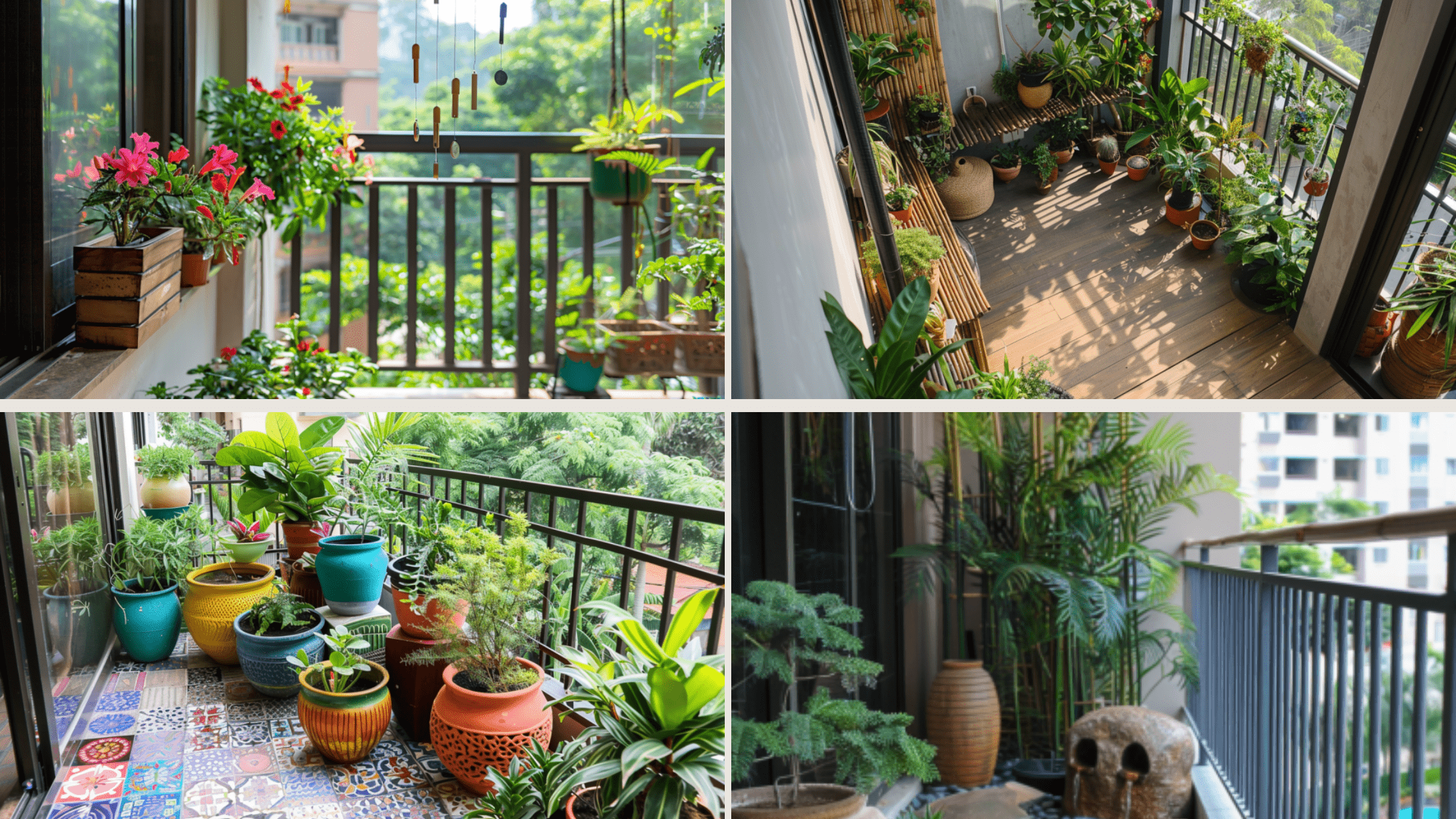Whether you live in a high-rise apartment or have only a small outdoor terrace, balconies can be prime real estate for a bit of green and some peace and quiet in your otherwise concrete life.
Small space doesn’t limit creativity, in fact, a smaller canvas can help to foster some of the most innovative ideas.
Whether you are looking for a lush plant display, cozy nooks that blur the indoor-outdoor line, or something in between, here are 10 balcony garden ideas that are worth copying to refresh any small outdoor area.
1. The Compact Herb Garden
If you can’t spare floor space but have a passion for fresh herbs to use in your cooking, a vertical herb garden may be the perfect solution.
Vertical gardening is a great idea for those who have no space, because you can use the interior walls of your balcony.
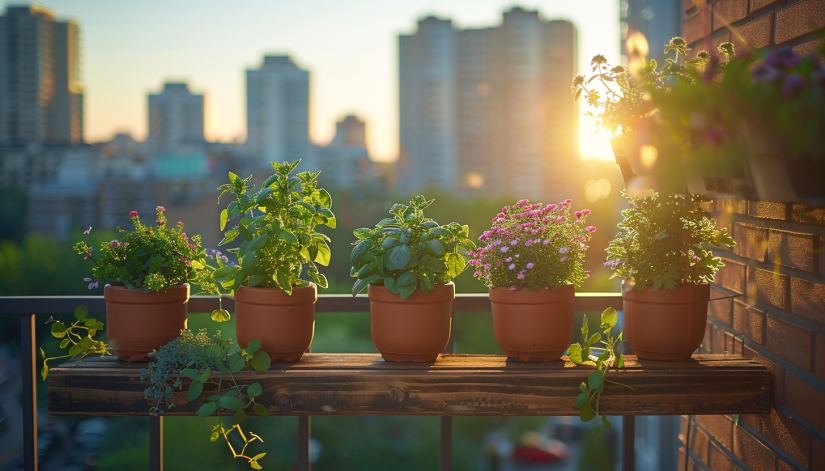
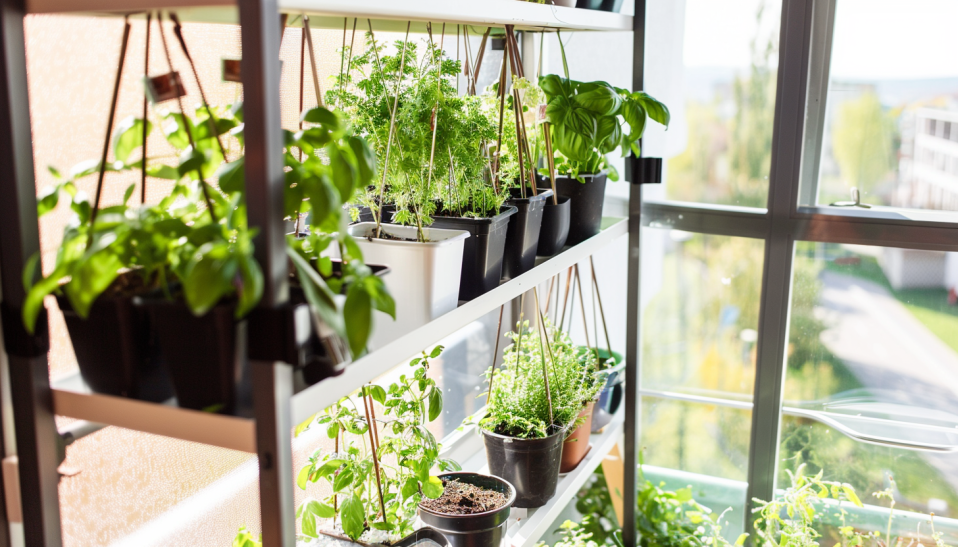
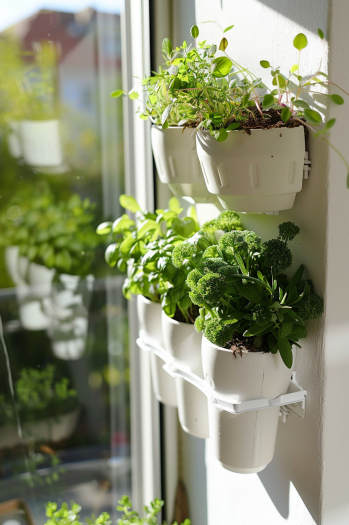
This way, you are using the interior walls of your balcony, keeping your floor space free, and still growing lots of herbs.
Hang planters or install shelves on the wall and put pots of basil, thyme, parsley and cilantro in them.
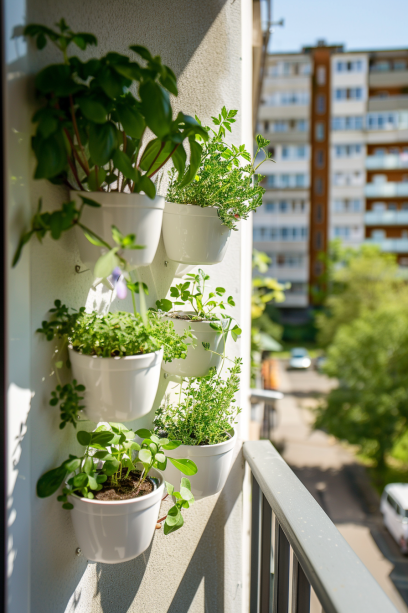
Make sure there’s enough sun to support your herbs, placing them to face south or west is ideal.
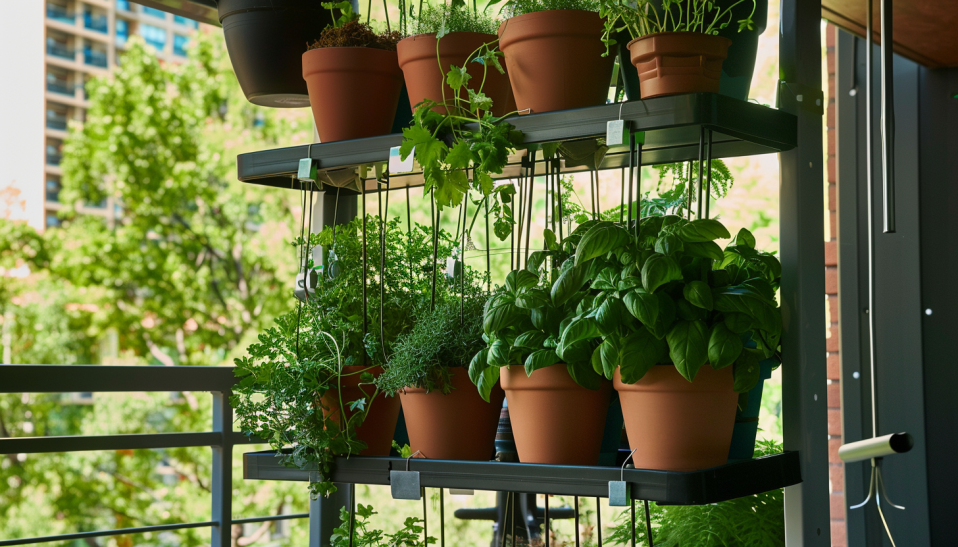
Install some automatic drip irrigation systems to make maintenance easier – especially if you’re an urban gardener who works long hours.
2. Potted Paradise
Take your balcony and plant it with potted plants, growing a whole green escape on a small scale, making the most of the dimensions of your balcony and experimenting with different sizes and species of plants.
Select pots in different sizes and colors to add depth and interest.
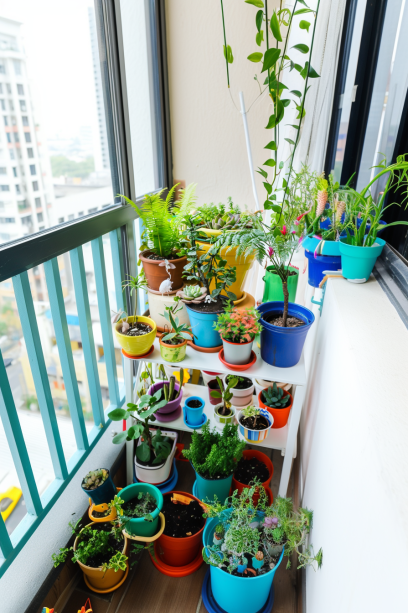
Group plants together to create a mini botanical garden and make sure there’s enough space to walk around.
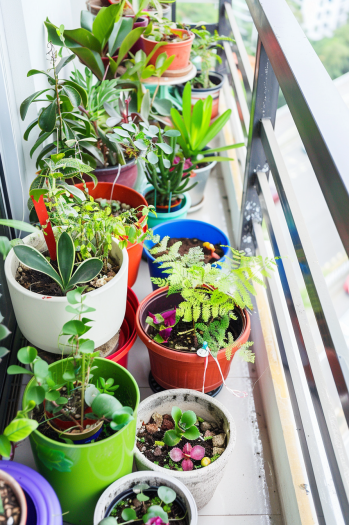
Choose plants like ferns, succulents, and small shrubs that suit your balcony’s climatic conditions.
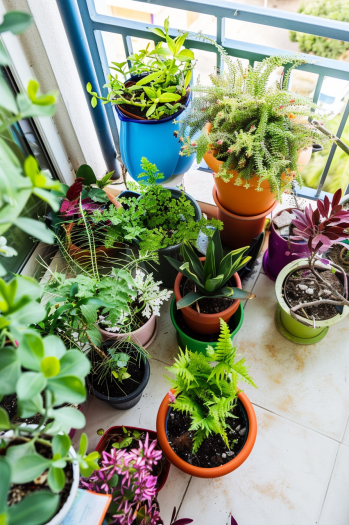
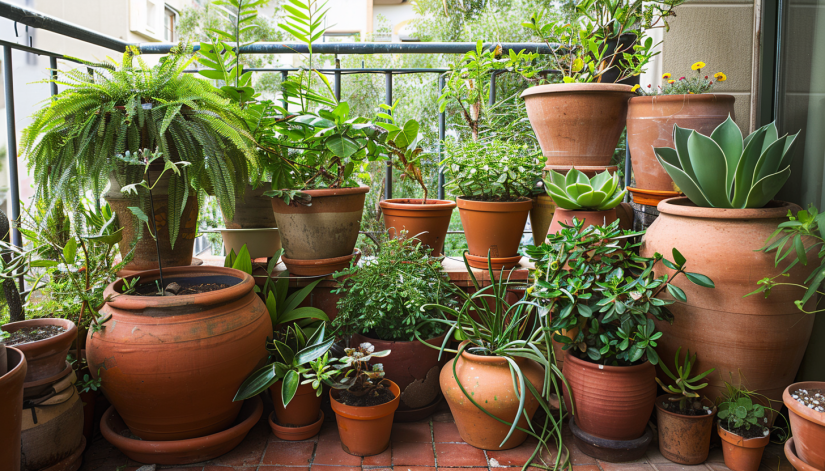
3. The Hanging Garden
Can you imagine how anyone on your balcony would be left breathless at a hanging garden, especially if you love flowers and dramatics?
Use a mix of hanging baskets and cascading vines to create layers and height.
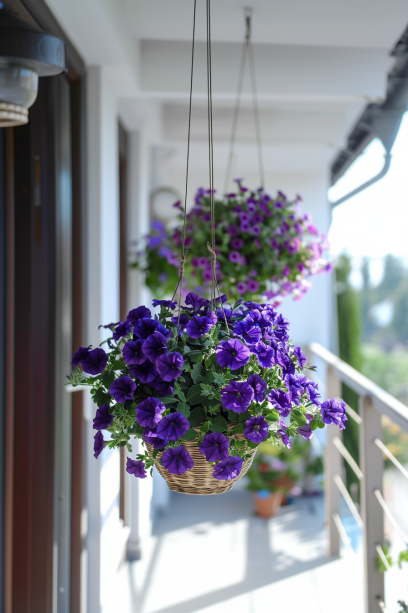
Go for flowering plants such as petunias, ivy and trailing lobelia to add colour and scent.
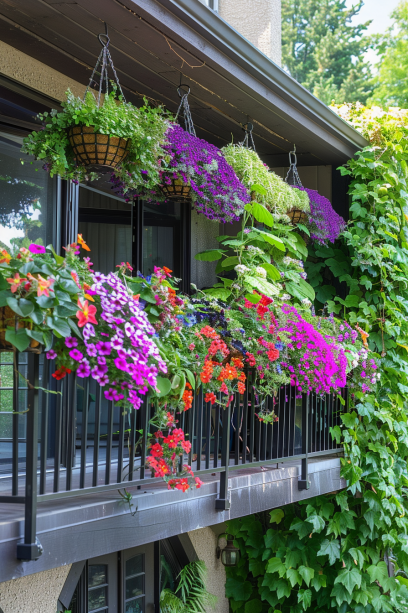
Make sure the structures from which baskets hang are secure and strong enough to support the weight.
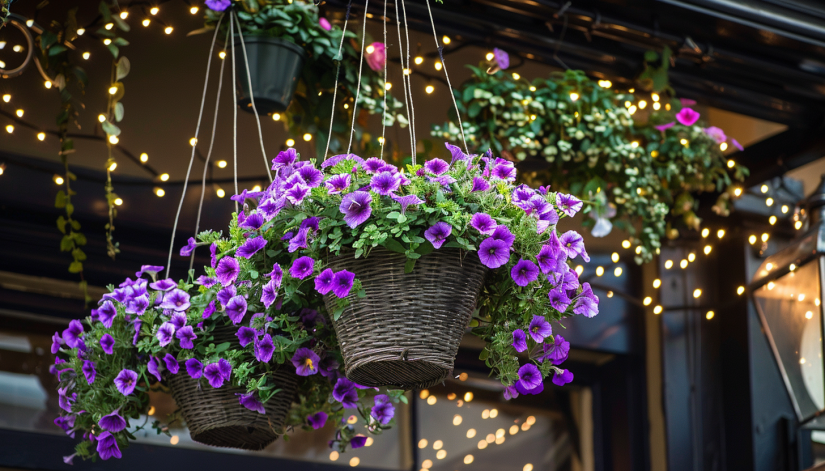
4. Edible Oasis
Close your eyes and imagine strolling out onto your balcony in the morning, and seeing tomatoes, peppers and strawberries growing there.
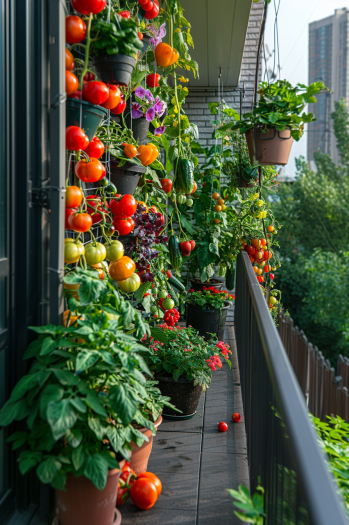
Combine utility and aesthetics by choosing colorful varieties of vegetables and fruits.
Use large containers for root vegetables and trellises for climbing plants such as cucumbers or beans.
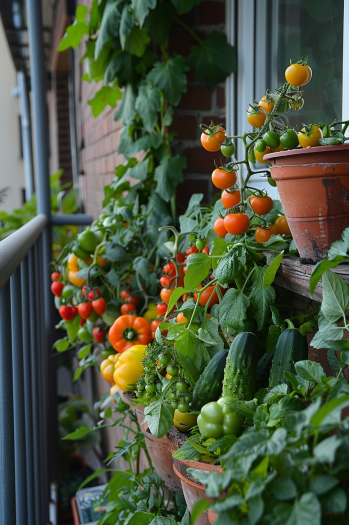
If you have a small balcony, be sure to check its weight capacity, especially if you plan to use large planters.
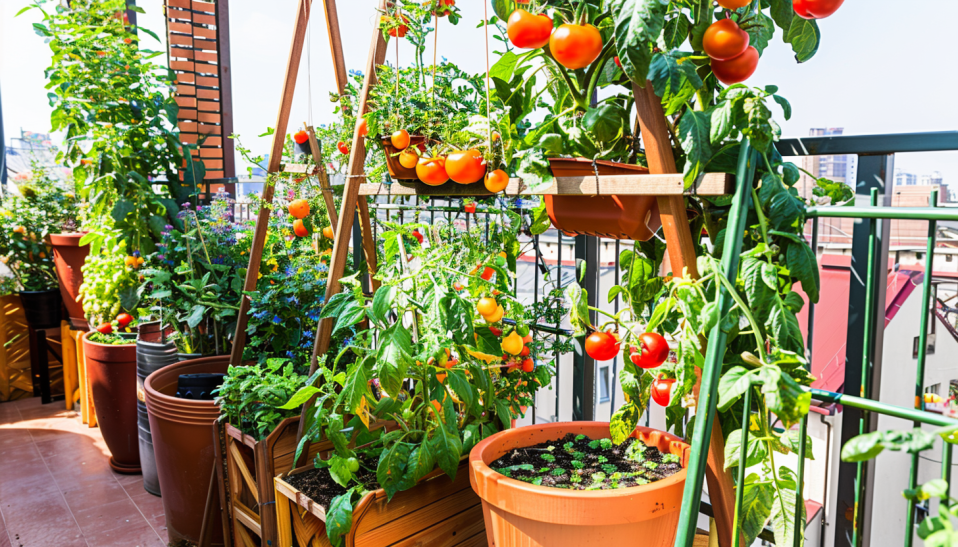
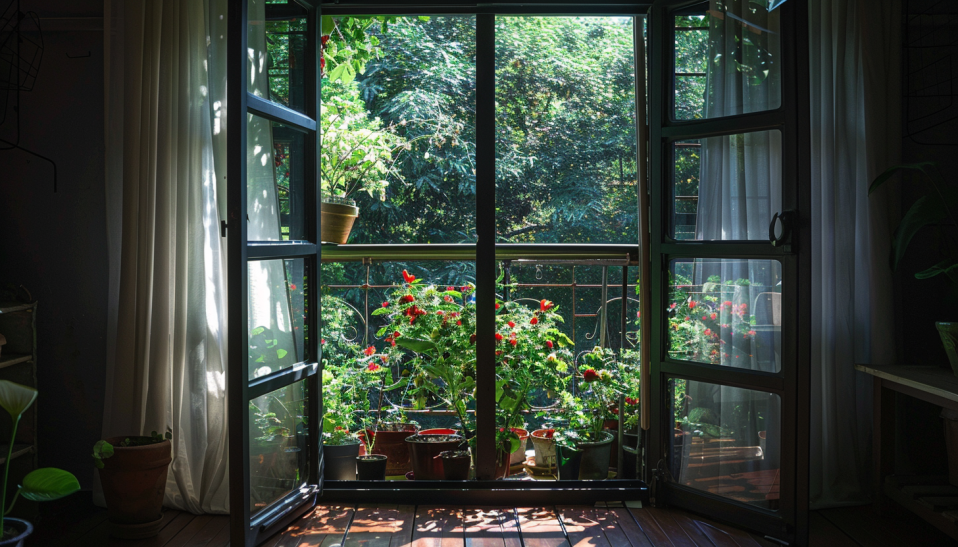
5. Zen Retreat
Design a minimalist garden with a goal of creating a relaxed atmosphere and achieving balance.
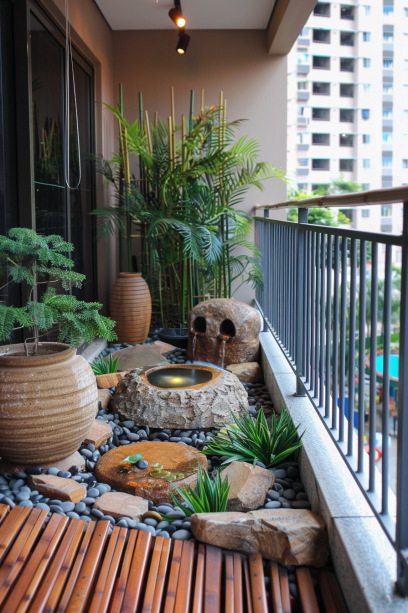
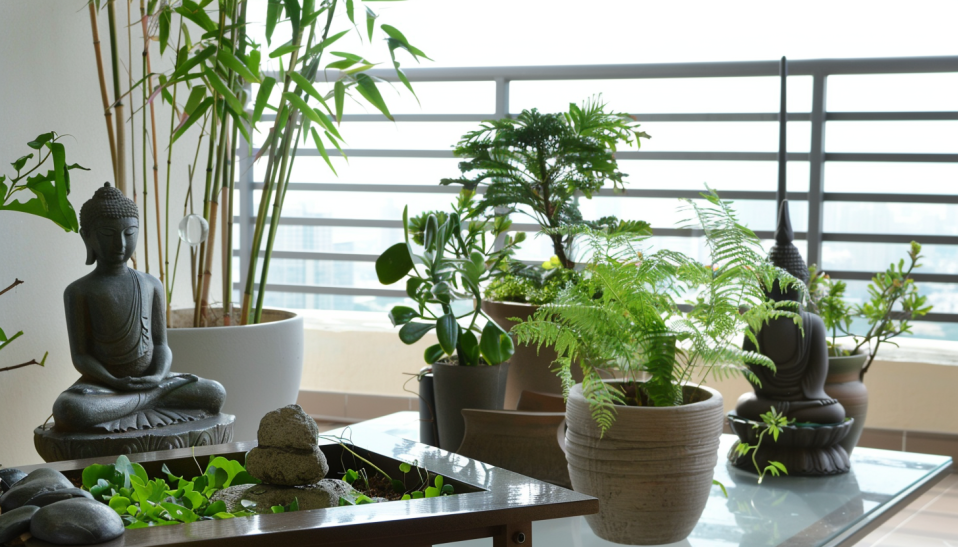
Include a small water feature, like a tabletop fountain, to add soothing sounds.
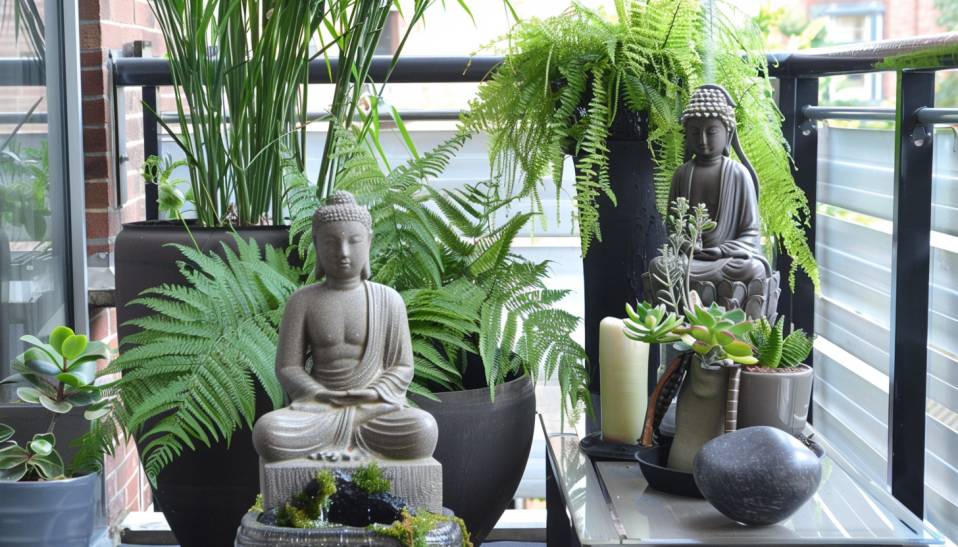
Choose subdued colour pots and soft ferns (or bamboo) to further the Zen vibe.
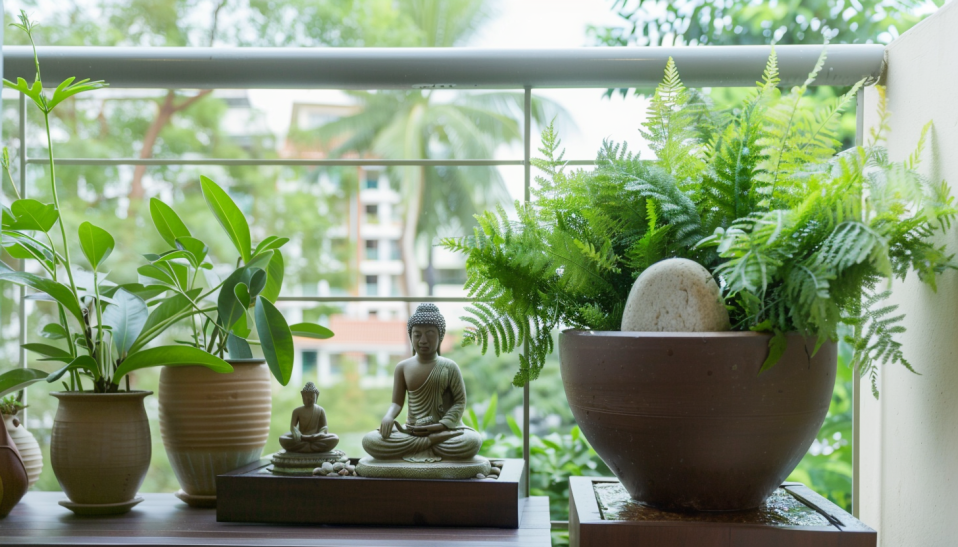
One ‘statement piece’ – a Buddha figure or a large rock, perhaps – can help unify a garden.
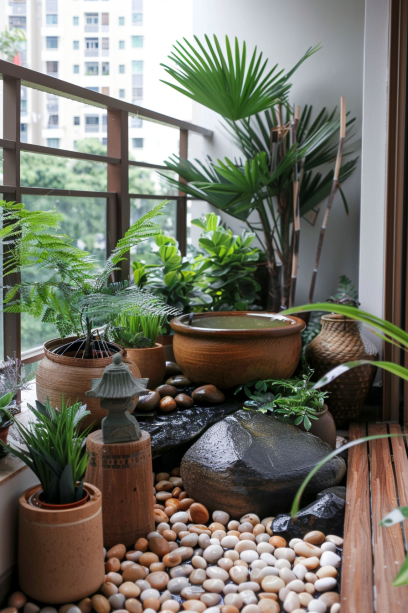
6. Colorful Boho Chic
Bring bohemian exuberance to your balcony with blasts of colour, kaleidoscopic patterns and soft textures.
Layer colorful outdoor rugs, throw pillows, and blankets for a cozy atmosphere.
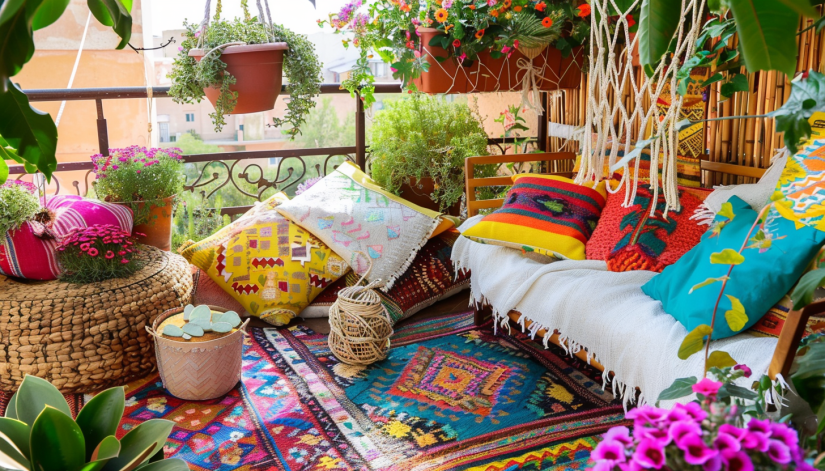
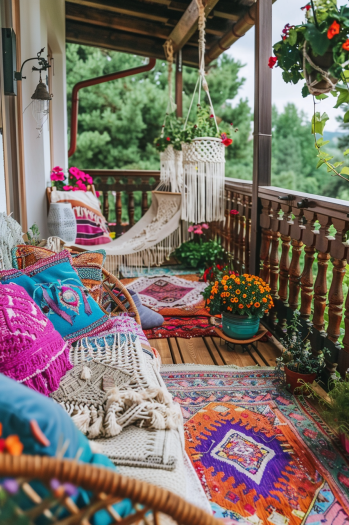
Integrate hanging macramé plant holders to display your plants.

Brightly colored flowering plants like marigolds or daisies can add to the boho flair.
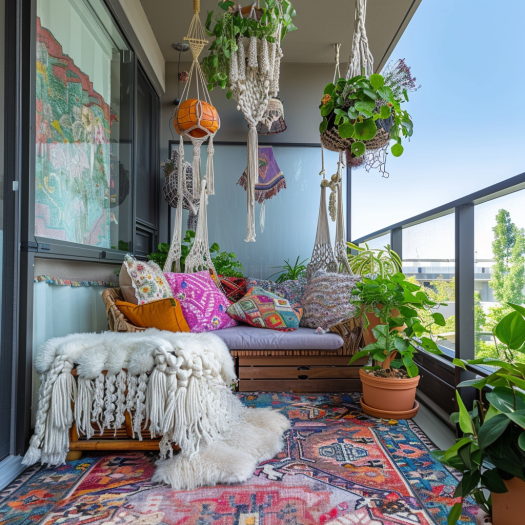
7. Stylish Monochrome
A garden based on the monochrome theme, using shades of white and grey, will suit those who want a more simple and elegant garden.
Plant white flowering plants such as petunias, and add grey foliage such as Dusty Miller.
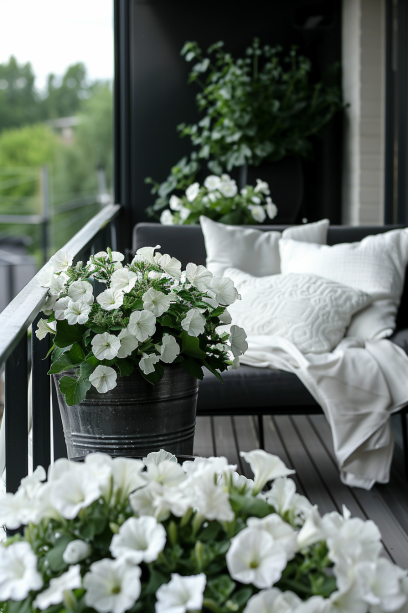
Use metallic planters for a touch of luxury.
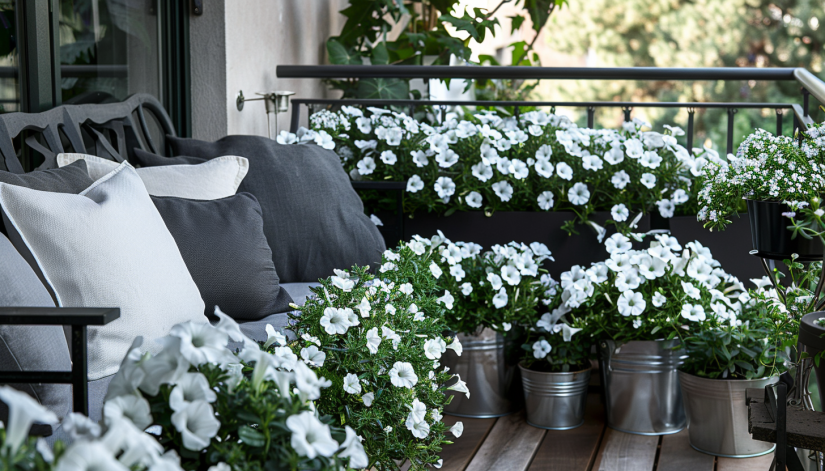
Select furnishings in black or white, adding contrast and sophistication.
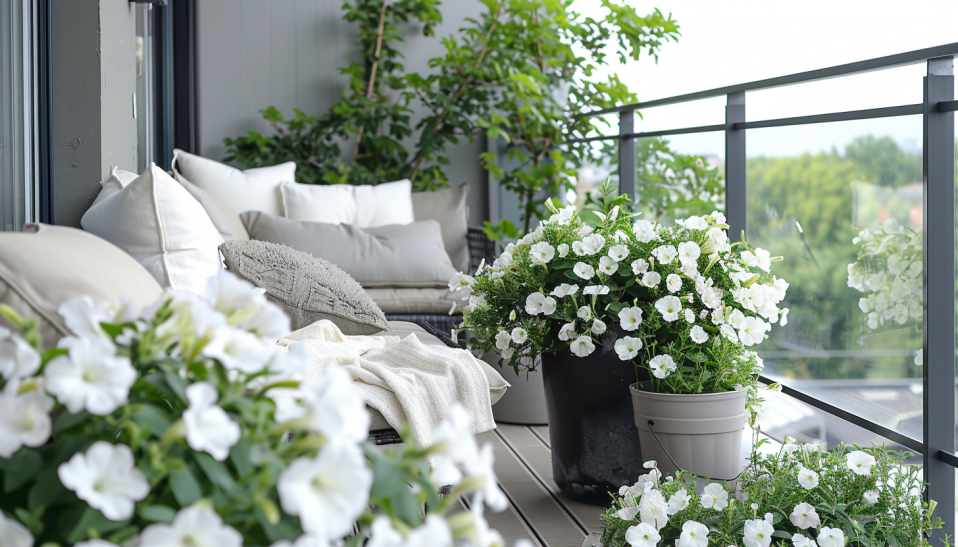
8. Cottage Core Dream
Give it the charm of a cottage garden with plants that are perennial, fragrant and simple.
Include abundant flowering plants like lavender, roses, and geraniums for a soft, lush look.
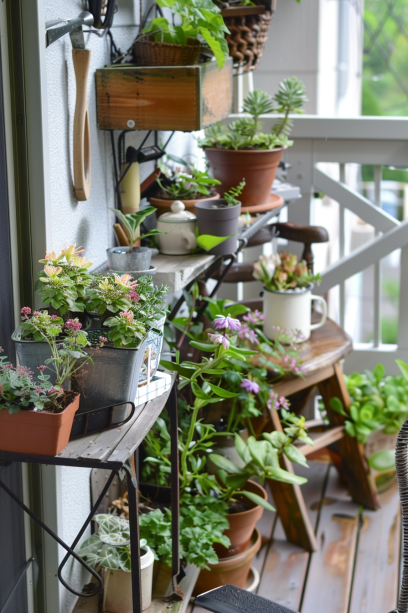
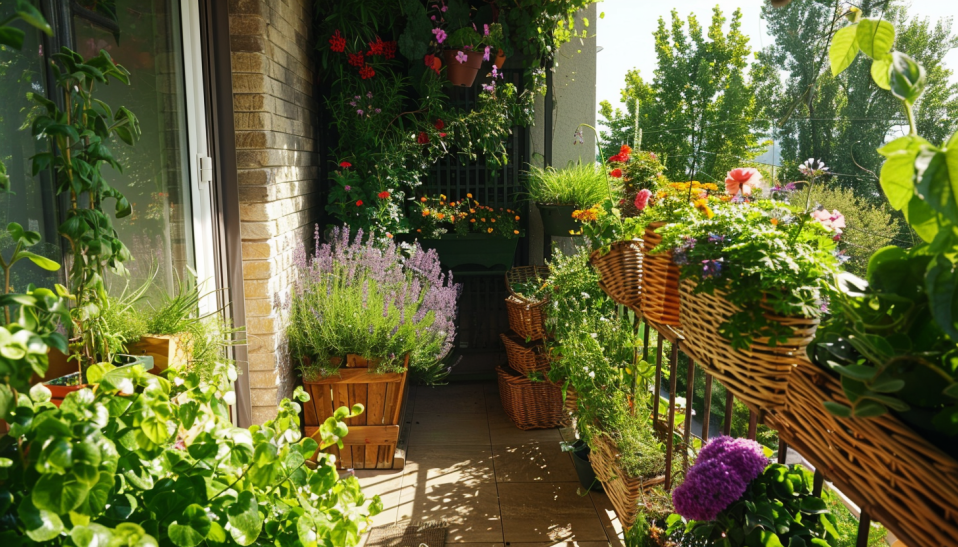
Use wooden barrels or woven baskets as planters for a rustic touch.
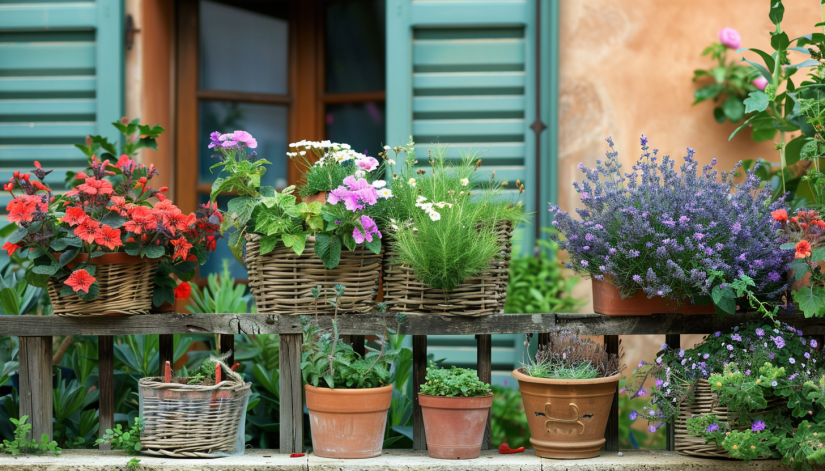
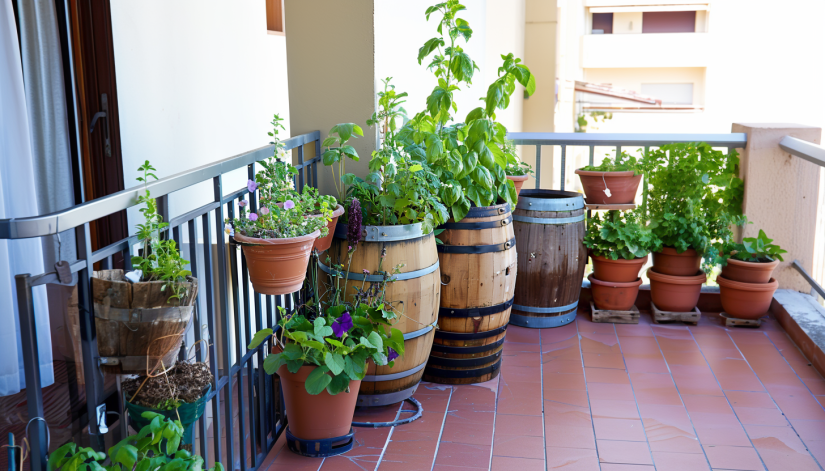
Props such as vintage gardening tools or a wooden ladder as a shelf, for a touch of whimsy.
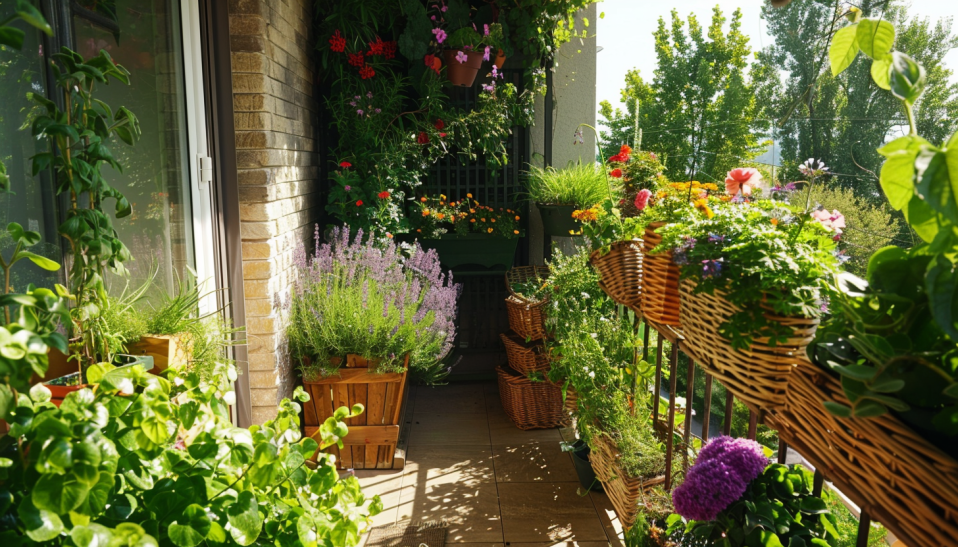
9. Sustainable and Eco-friendly
Build a green balcony that not only looks good but also benefits the environment.
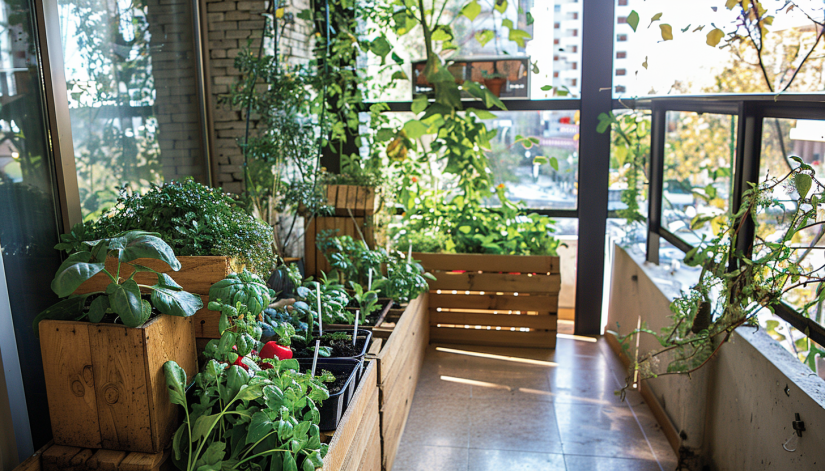
Opt for native plants, which are more likely to thrive and support local wildlife.
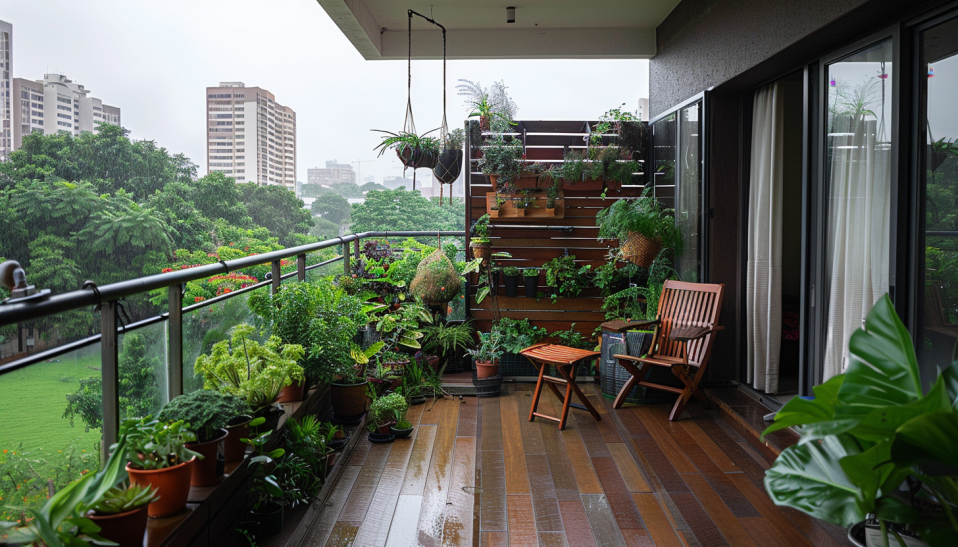
Consider setting up a mini rainwater harvesting system to irrigate your plants.
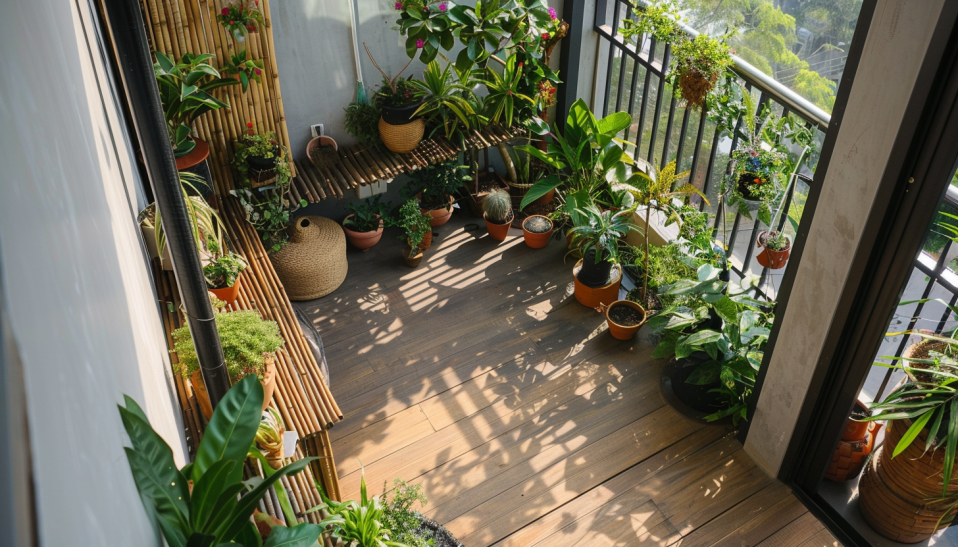
Install a small compost bin for organic waste from your kitchen.
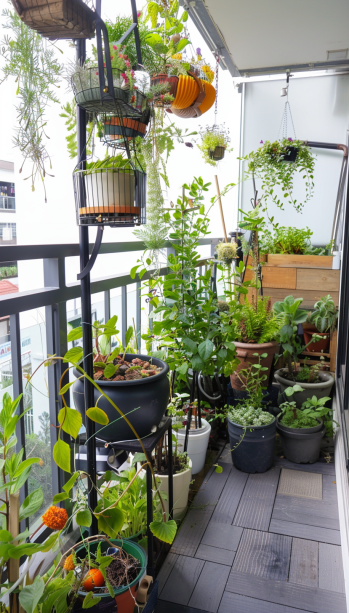
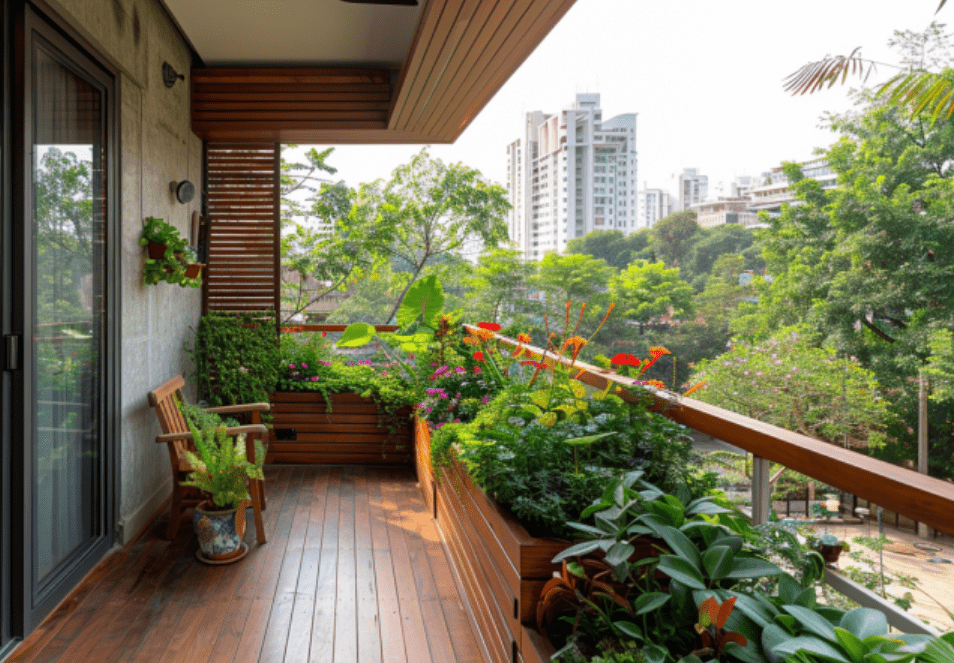
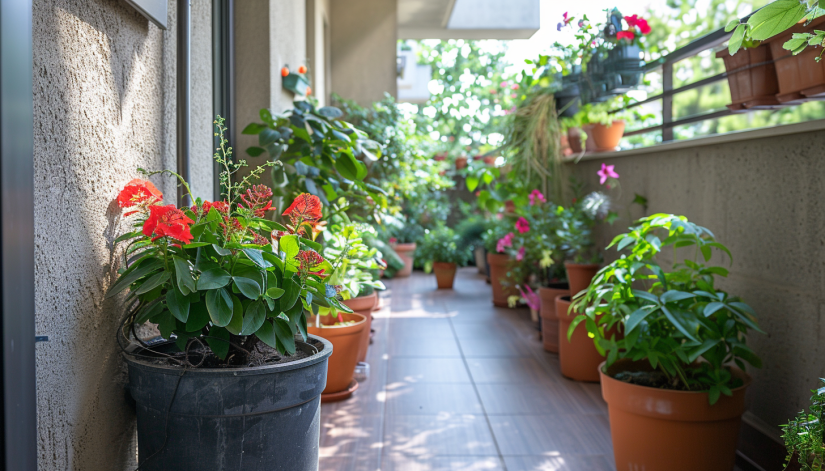
10. Nighttime Glow
Create a magical evening retreat with the right lighting and night-blooming plants.
Install string lights or solar-powered lanterns for a warm glow.
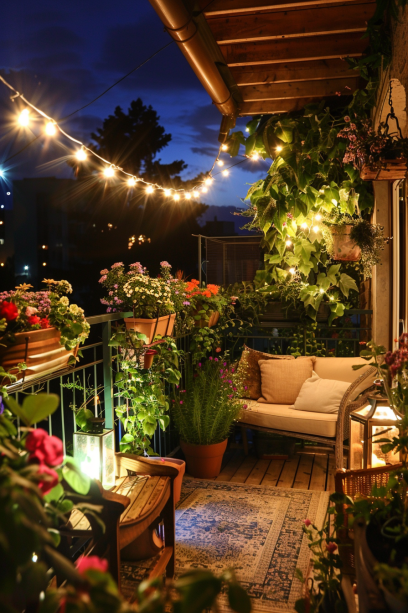
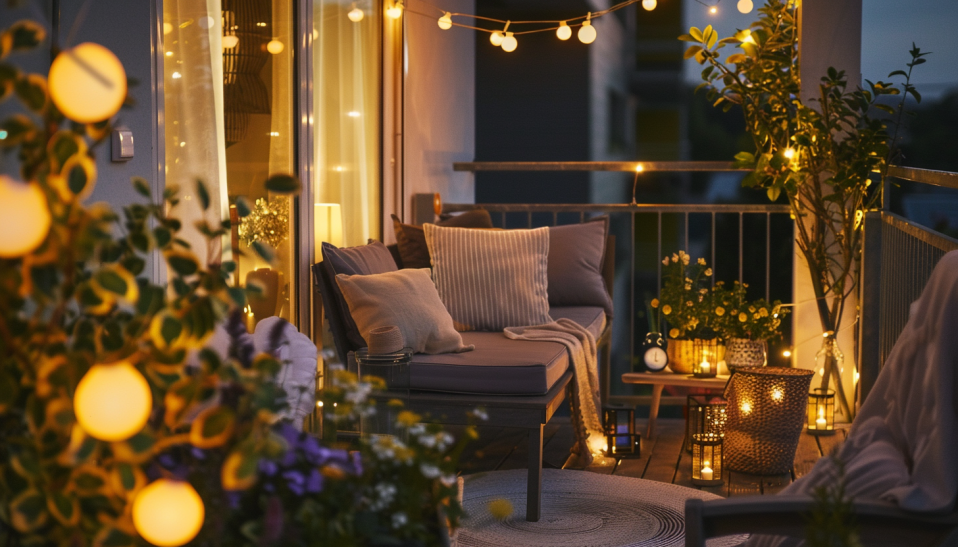
Include night-blooming flowers like moonflowers or evening primrose.
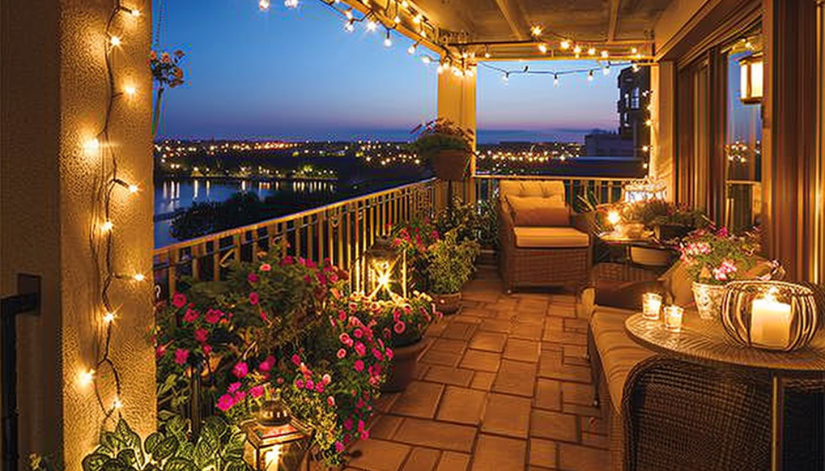
Opt for light-colored furniture to enhance the luminosity of your balcony at night.
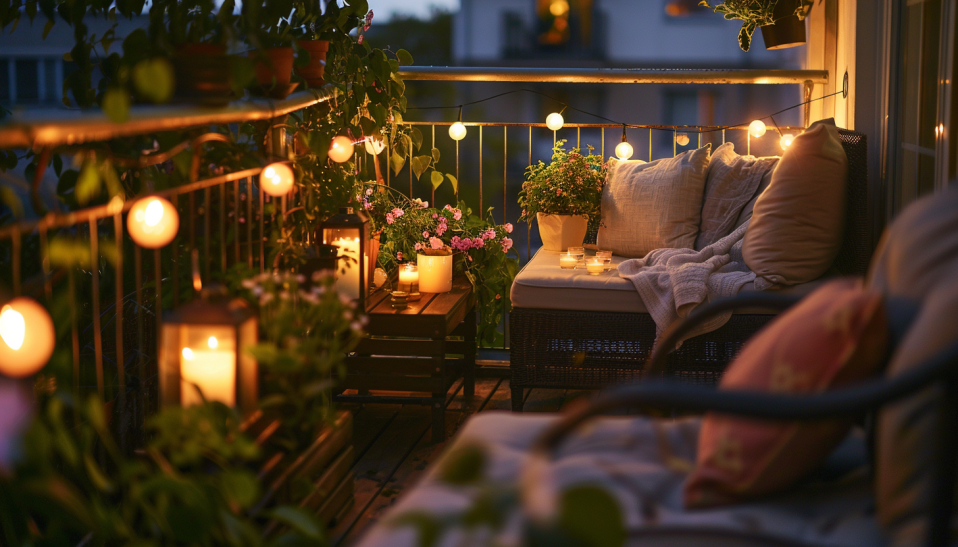
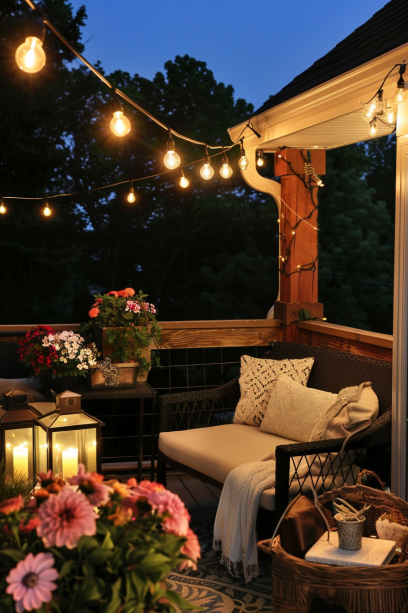
Choosing Plants for Your Balcony Garden
When choosing your plants for the balcony garden, you need to consider the limited space and the environmental conditions.
Here’s how you can choose the plants that will survive or even thrive in your balcony.
Below is a list of plants that are particularly well-suited for balcony environments:
Herbs
Easy to grow basil, mint, cilantro or parsley can be used in cooking.
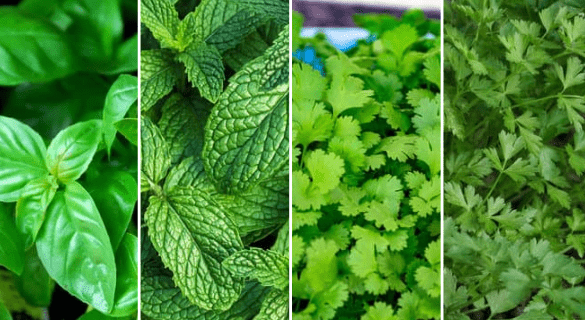
Flowering Plants
Petunias, marigolds, geraniums, and others add colour and are easy to look after.
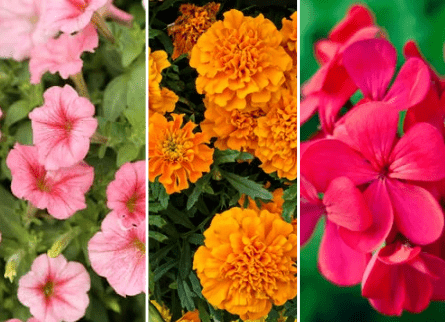
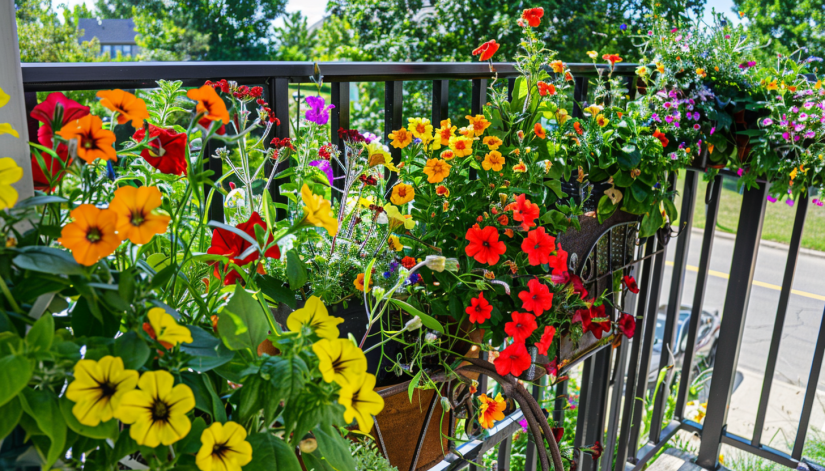
Succulents
Sun-worshipping and indestructible, cacti and succulents such as aloes and echeverias love neglect and require very little water.

Ferns and Shade Plants
For the balcony that receives less light, ferns and hostas are the attractive and enjoyable plant that thrives in low light.

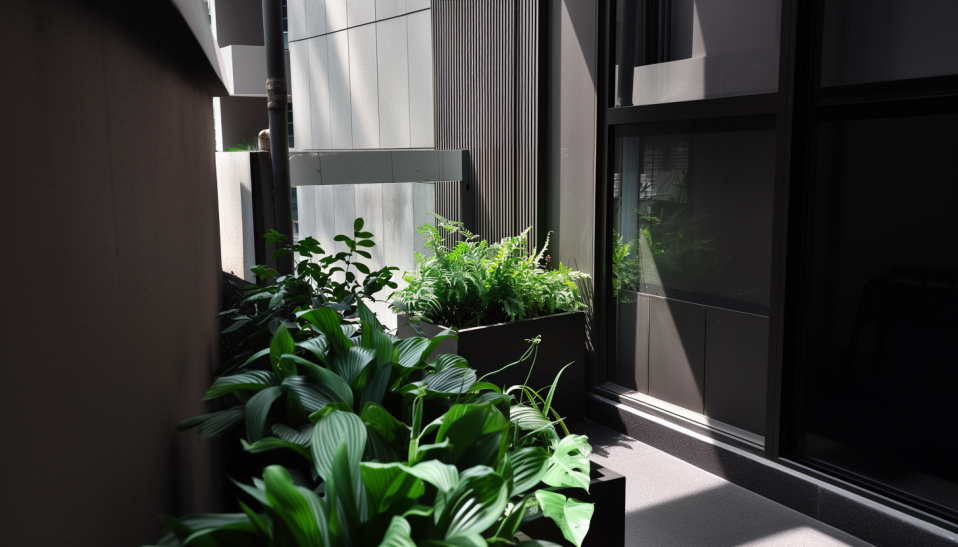
Seasonal Plants
Here’s how to choose plants according to different seasons:
🌷 Spring: Pansies, snapdragons, and tulips are all easy to find, living, and blooming a little early.
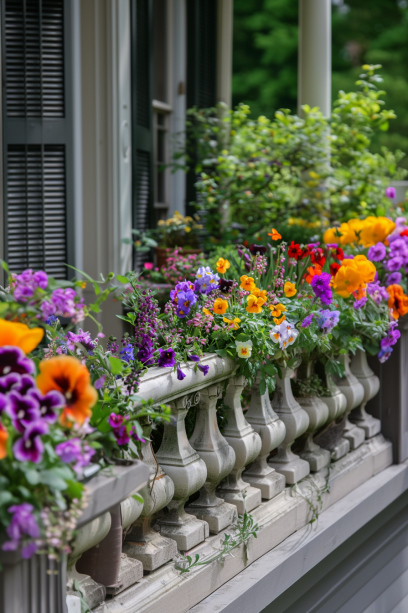
☀️ Summer: Lavender, zinnias and small kinds of tomatoes that can withstand the heat and give a plentiful harvest or bloom.
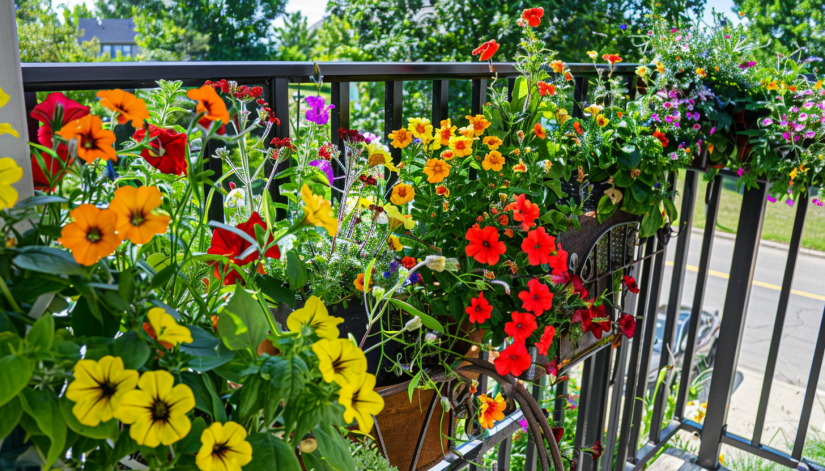
🍂 Autumn: Chrysanthemums and ornamental kale add stunning fall colors to your balcony.
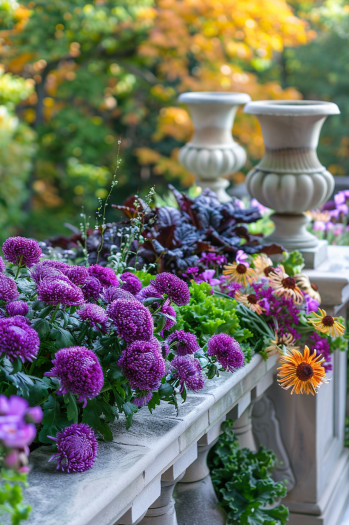
❄️ Winter: Hardy plants like evergreens or winter heathers add greenery during the colder months.
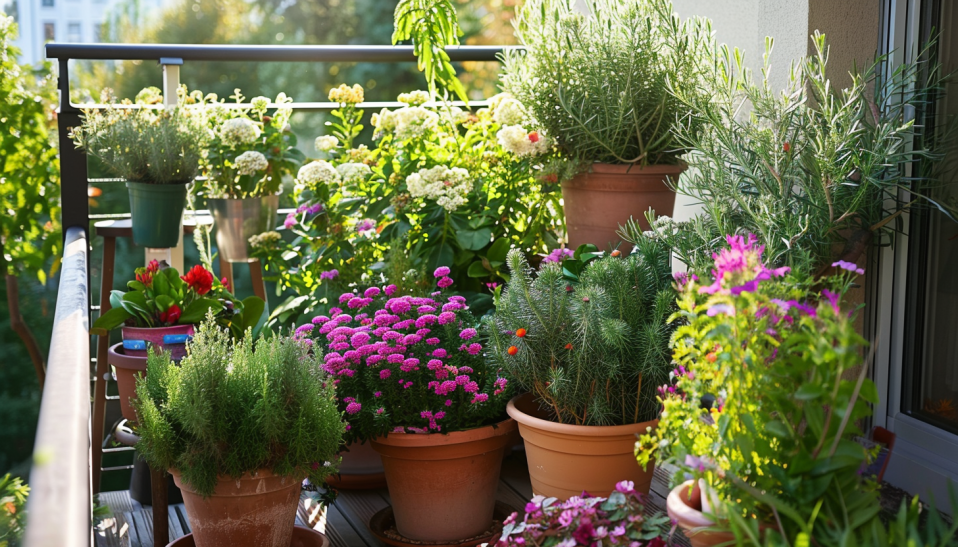
Choosing the right plants for your balcony garden will turn it into a place you’ll want to linger and relax.
When you plan carefully, your balcony can thrive through the seasons, bringing you enjoyment and a sense of the land.
Decorative Items
In addition to growing plants in your balcony garden, you may want to consider adding a personal touch by adding décor.
This can really help transform your little outdoor area into a place that feels inviting and relaxing.
Decorative Pots: Let your decorative pots be an extension of your style. Whether you prefer brightly coloured ceramics, earthy terracotta, or contemporary modern surfaces.
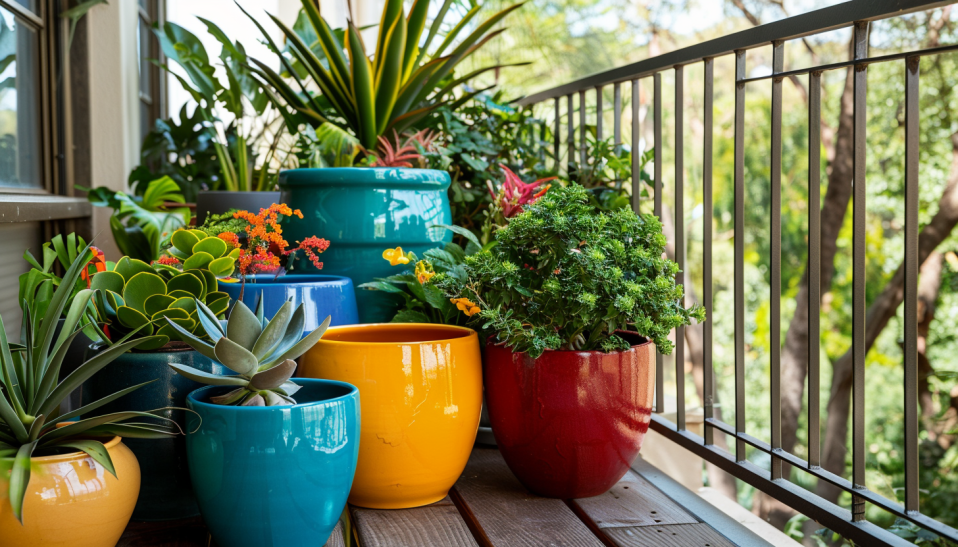
This can be your brightly coloured base for your plants, which also serves as stand-alone decorative pieces.
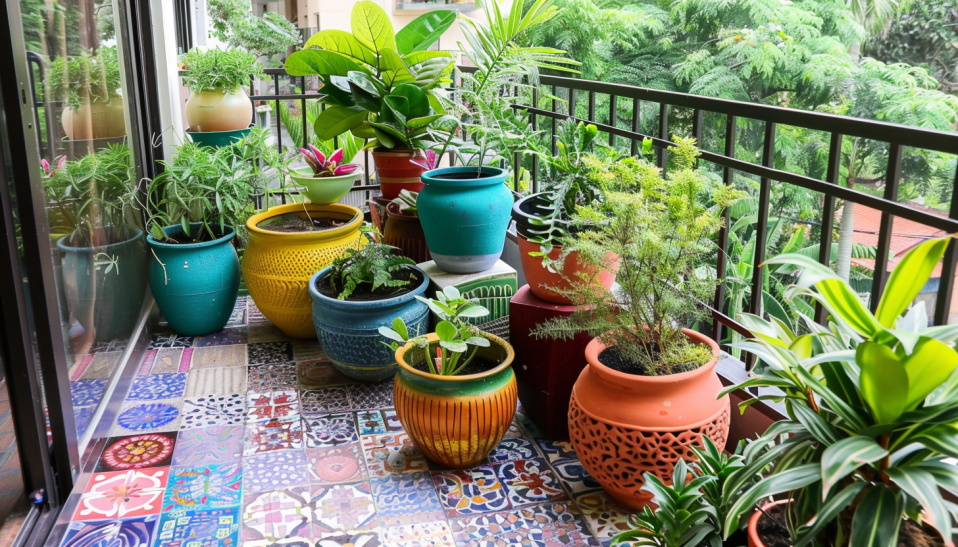
Fairy lights: string up fairy lights for a magical evening ambience. Use solar lights for an eco-friendly option.
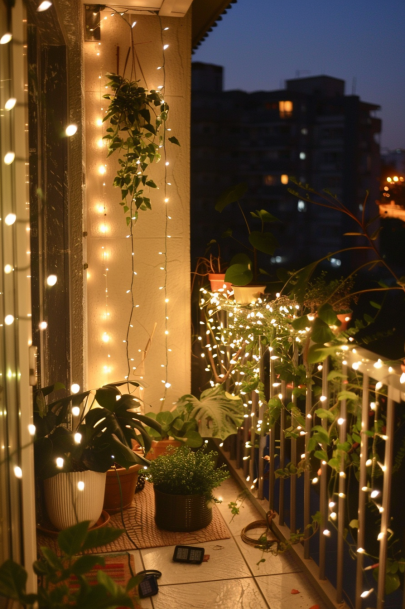
Artful Weather: Sculptures or wall art that is weather-resistant can add a touch of artistry to your balcony.
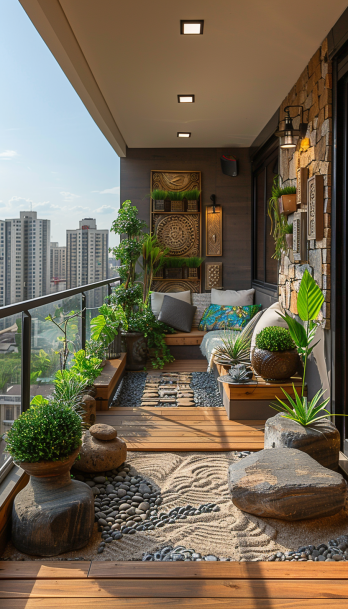
Stone, metal or weather-proof paintings are good options to consider.
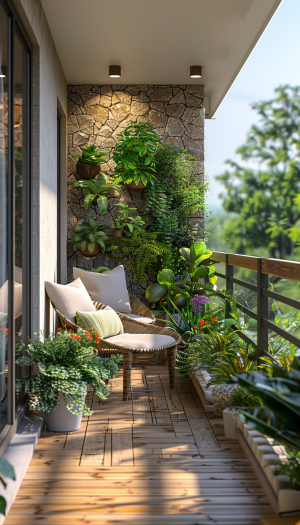
Outdoor rug: These can be very useful to define the living space and make it feel more homely.
Select bright patterns or colours to complement the greenery.
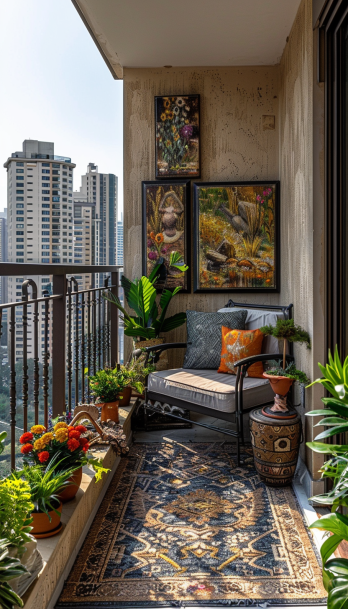
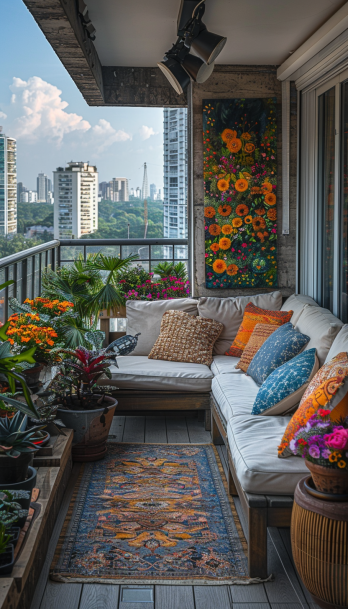
Hanging Baskets: Make use of vertical space by utilizing hanging baskets, allowing you to grow both ornamental and edible plants in the same space.
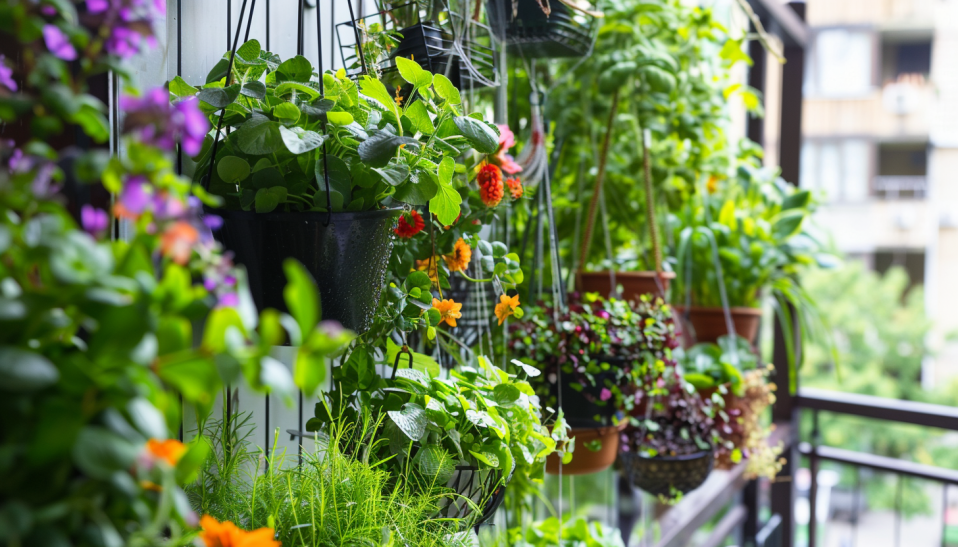
Wind Chimes: A set of wind chimes hanging in your garden can bring a pleasant sound to your garden and create a tranquil atmosphere by playing light melodies as the wind blows. (I love them)
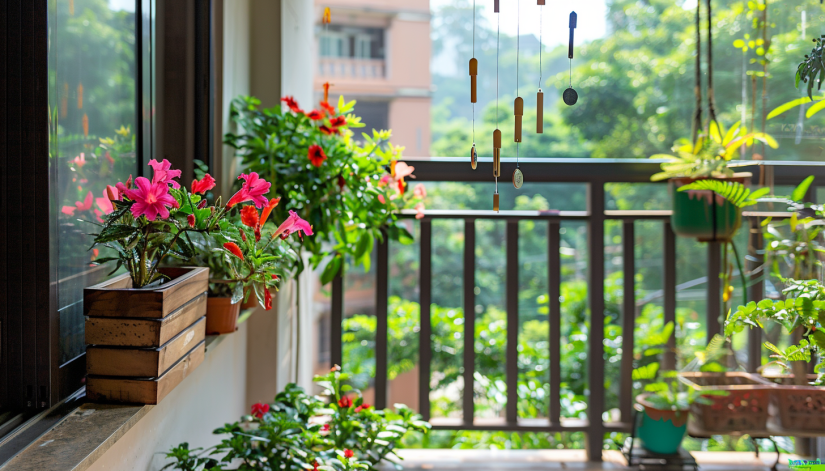
Plant Stands: Give your plants a boost with tiered plant stands or pedestals.
Not only do they create depth in your space, but they can also help to maximise sun exposure for plants on different tiers.
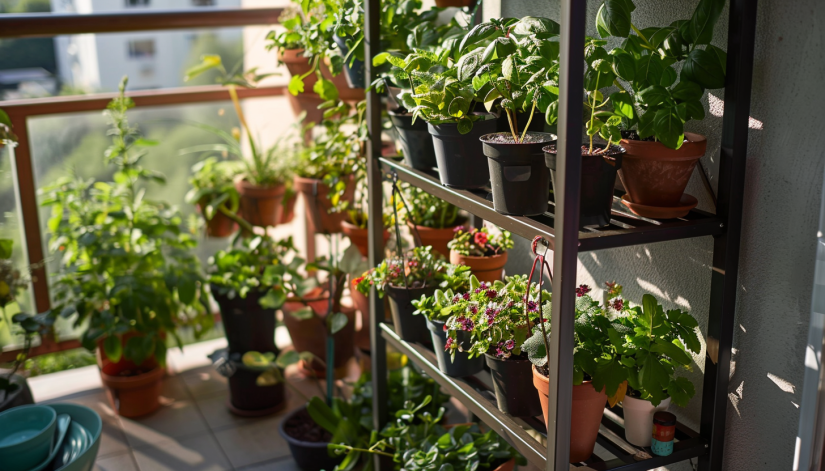
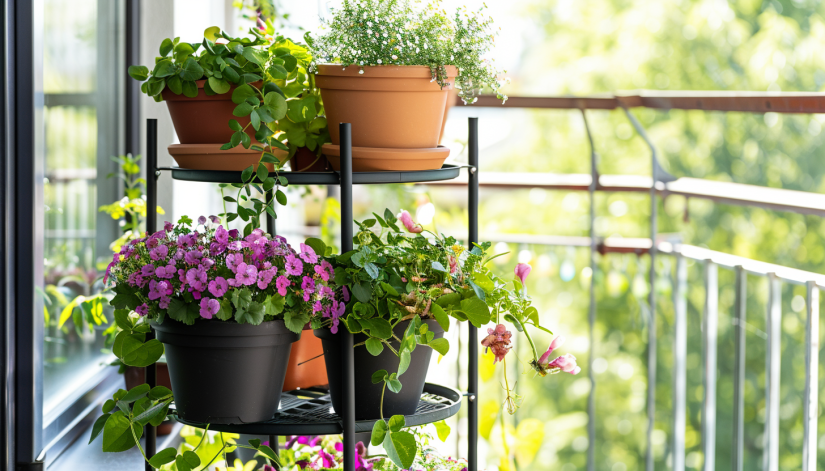
These tools and embellishments can transform your balcony from an outdoor side-space to a living, leafy, welcoming and pleasing extension of your living space.
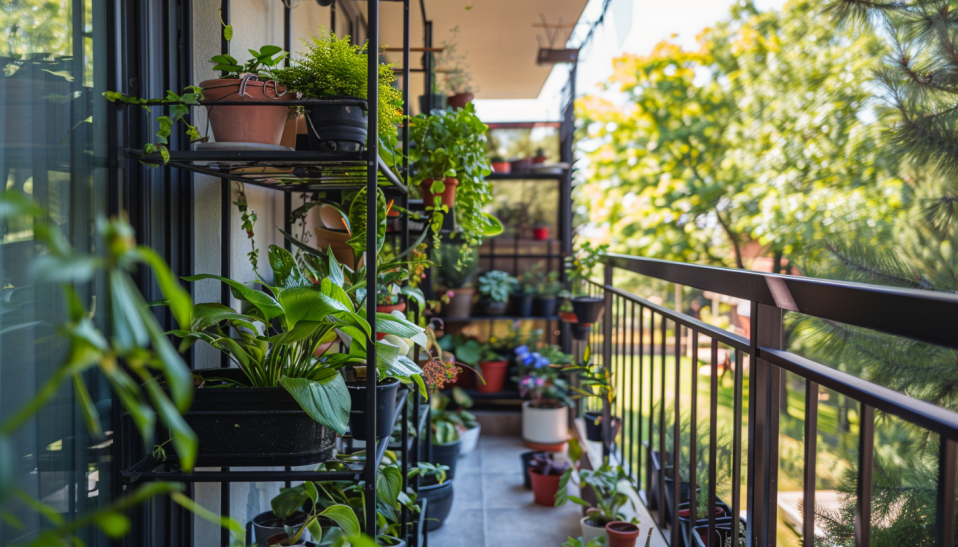
Each is an either practically useful or aesthetically pleasing addition that contributes to the simple, pleasurable and beautiful experience that is balcony gardening.
Tools and Accessories
Having a beautiful and flourishing balcony garden is not just about the right plants but also the right tools and accessories that facilitate your gardening tasks and the beautification of your green space.
Here is a rundown. Tools and accessories for balcony gardening:
Essential Gardening Tools
It is easier to keep your balcony garden healthy and productive when you have the right tools.
Here is a checklist of basic tools a balcony gardener should definitely have:
Hand Trowel: The classic tool for potting and repotting, with a hand trowel you can dig, turn over and mix soil.
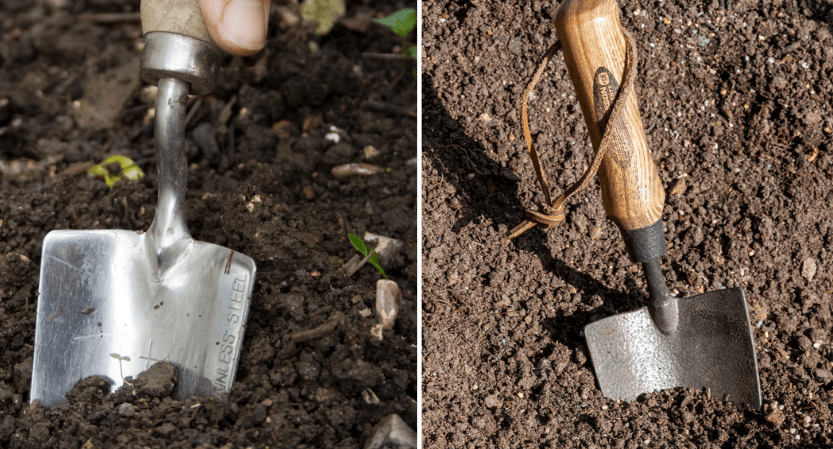
Pruning Shears: For shearing and shaping plants, and deadheading flowers and cutting back overgrown foliage.
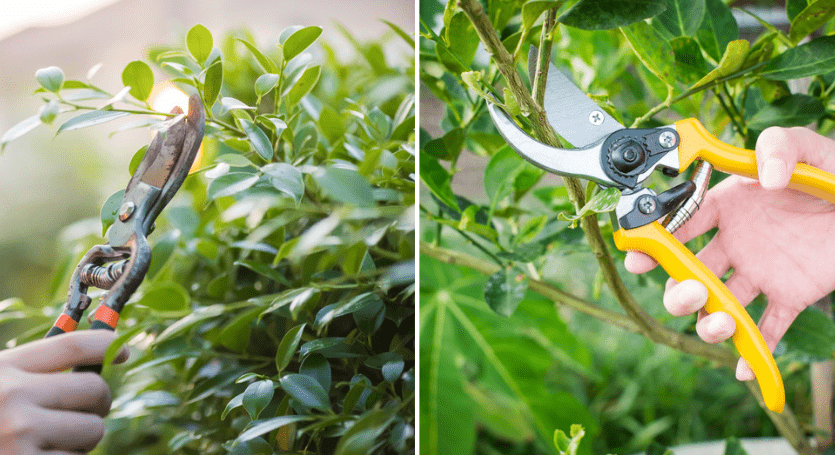
Watering Can: Because you can reach leaf tips and shoots, a long spout is useful for reaching into the middle of dense plants, so that you can water the base without wetting foliage.
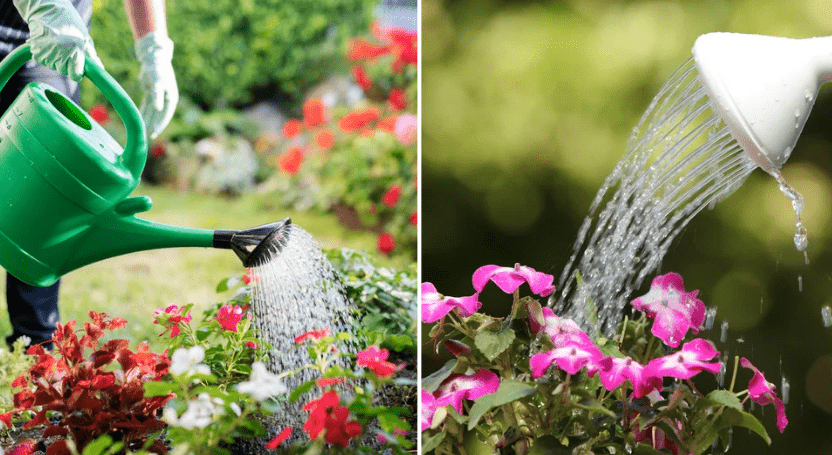
Gardening Gloves: Gardening gloves protect your hands from dirt, thorns and chemicals. They also give you a better grip on tools.
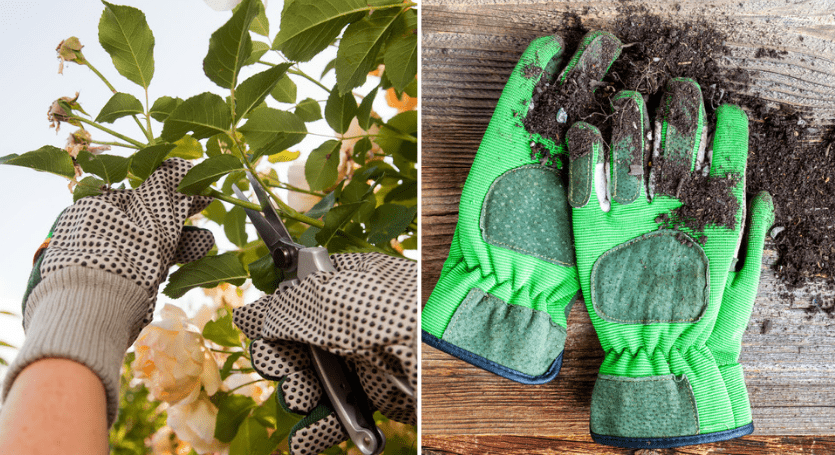
Spray Bottle: Used to water seedlings very lightly when they are young, and to spray the foliage. This is a very useful tool for balconies, where excessive water spillage can be annoying.
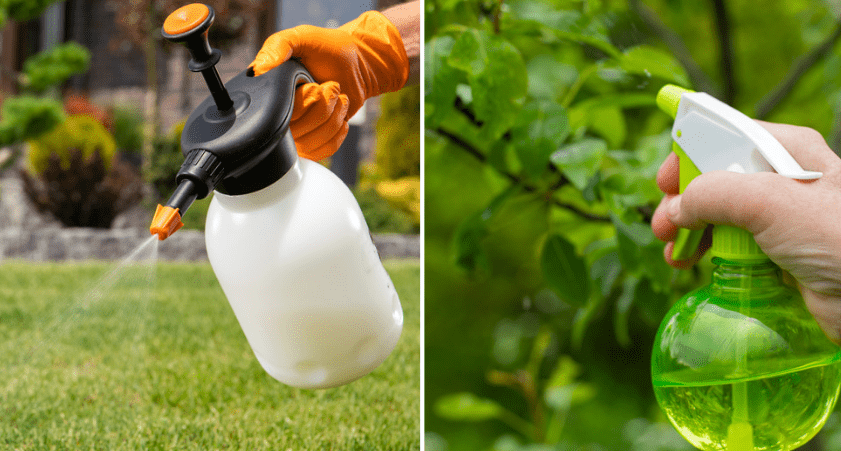
Small Rake: A small rake can be used to sweep leaves and other debris from the balcony as well as in pots for soil aeration.
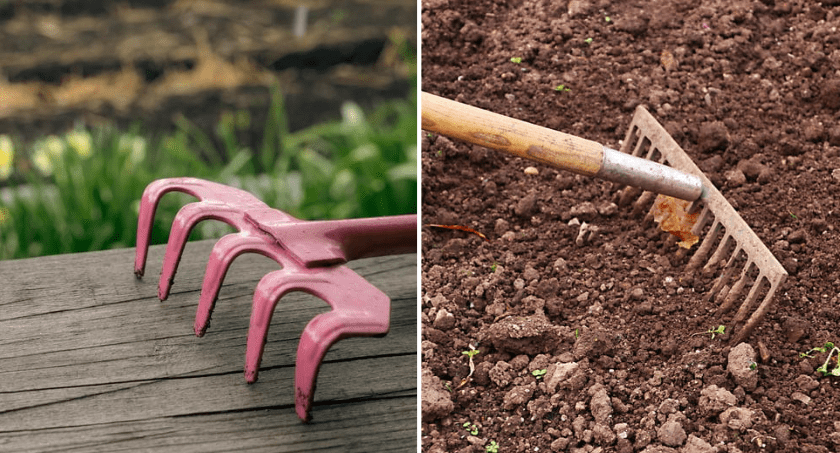
Bucket: Great for hauling soil, compost or garden debris. It’s also a multipurpose container for mixes of compost.
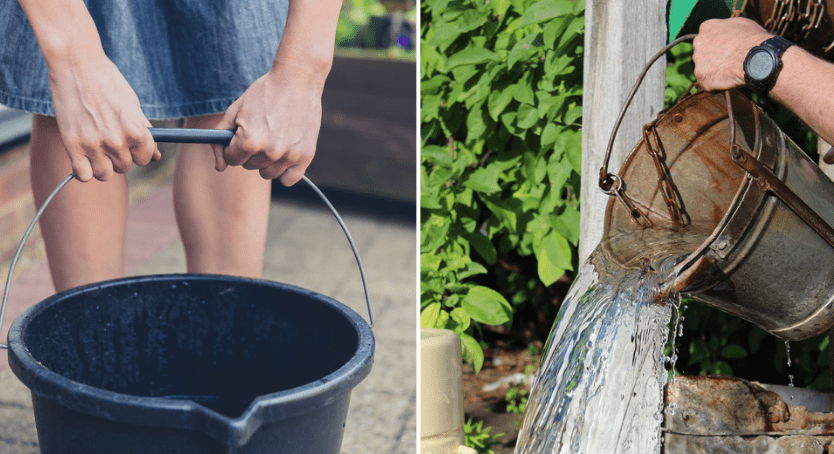
Pest Management
There’s nothing to stop pests from finding a niche in a balcony garden area – here are some organic ways to keep them at bay:
Neem Oil: Helps keep aphids, mites, whiteflies, and other pests at bay in an organic manner.
It’s not really a pesticide in the way that many think of them, but it keeps pests away and is safe to use around beneficial insects.

It’s a great tool to have on your balcony.
Insecticidal Soap: Control soft-bodied pests, such as aphids, spider mites and mealybugs, with insecticidal soap, which is non-toxic, easily washed off at the end of the season and will not leave residues.
Diatomaceous Earth: Good for those exoskeleton having pest insects like beetles and ants.
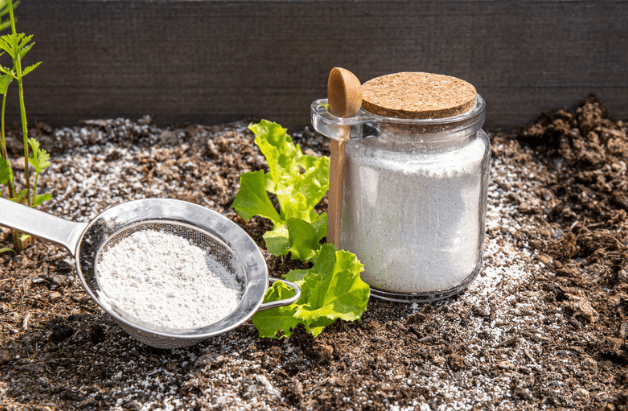
Diatomaceous Earth is a powder that when sypplied at the base of plants or around the plants, it physically prevents the pest from going near the plant.
It is a non-chemical way of pest management.
Companion Planting: Growing some plants together with others can help to repel pests.
For example, marigolds repel beetles and nematodes, while lavender can repel moths and fleas.
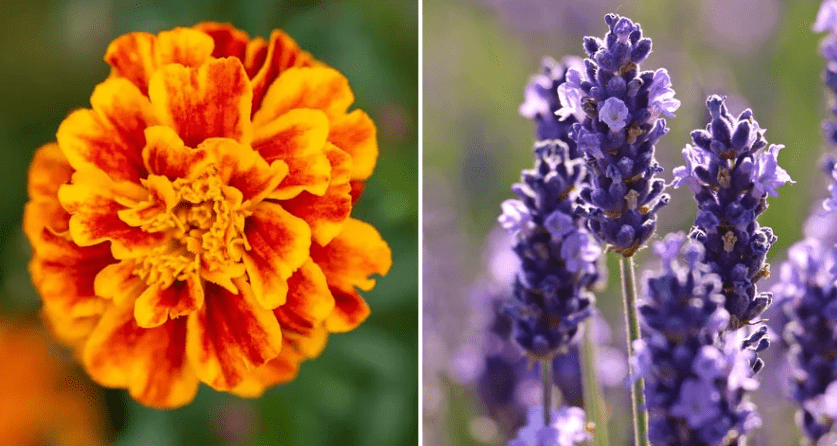
Remove them by hand: Inspect plants regularly and pluck off pests. This is one of the most immediate and effective actions for smaller infestations.
Weather Challenges
Balcony gardens are exposed to the whims of wind, rain and excessive sunlight, so here is how to protect your plants:
Wind Barriers
For windbreaks, place heavy and stable planters instead, or install clear plastic screens to prevent wind damage without blocking light.
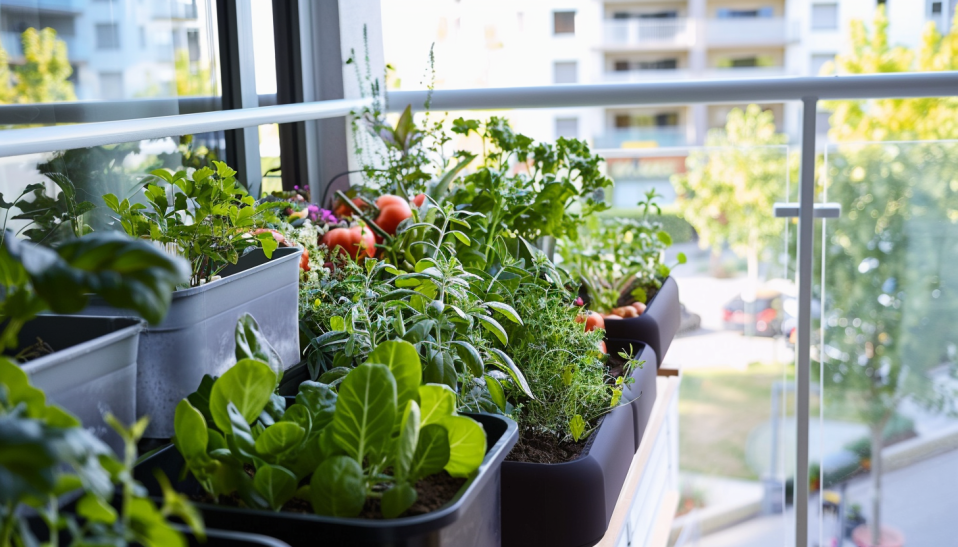
Shade Solutions
Install a retractable awning or shade cloth to prevent leaf scorch and overheating of soil when the sun is at its highest.
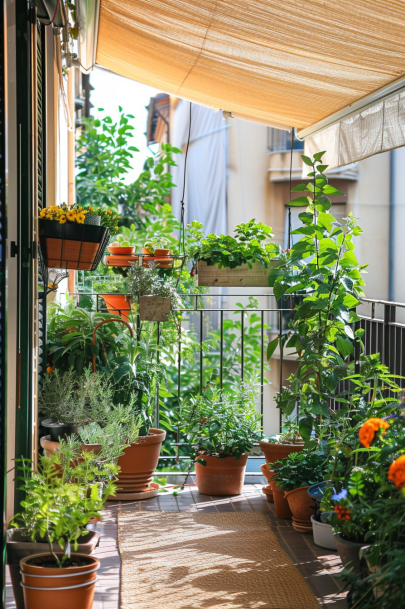
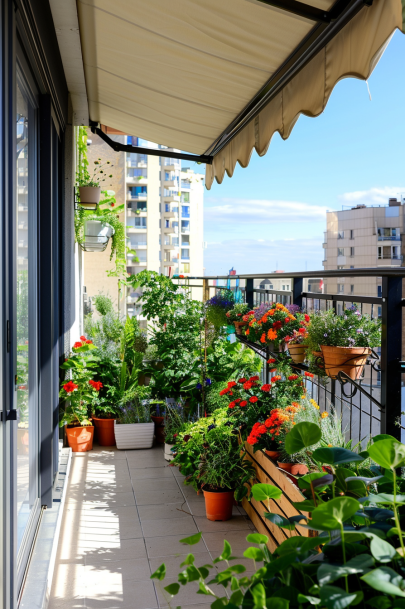
Proper Drainage
All pots (containers) should have sufficient holes underneath for the free drainage of water in case of heavy rains.
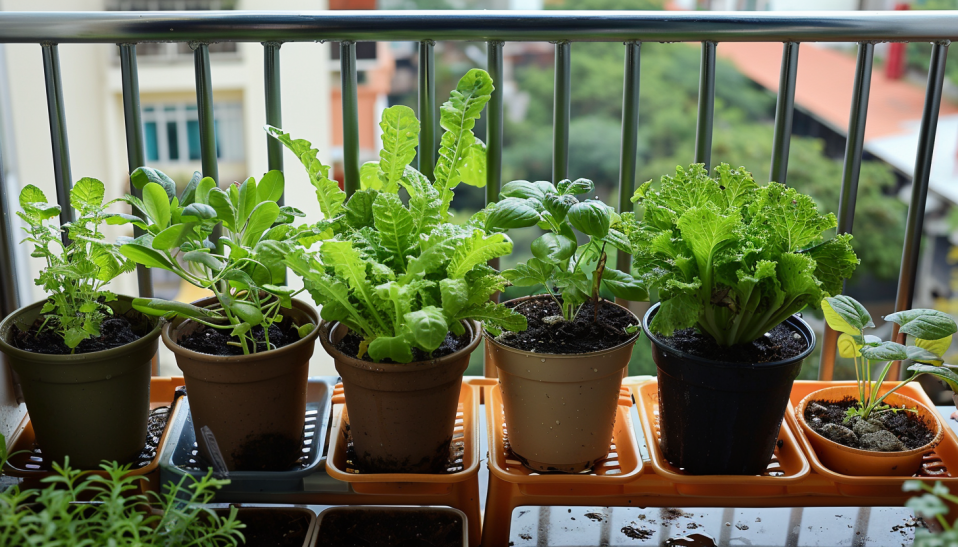
You can also put a saucer to collect excess water.
Anchor Lightweight Items
Fasten lightweight pots and decorations to railings or other secure structures to keep them from tipping over in high winds.
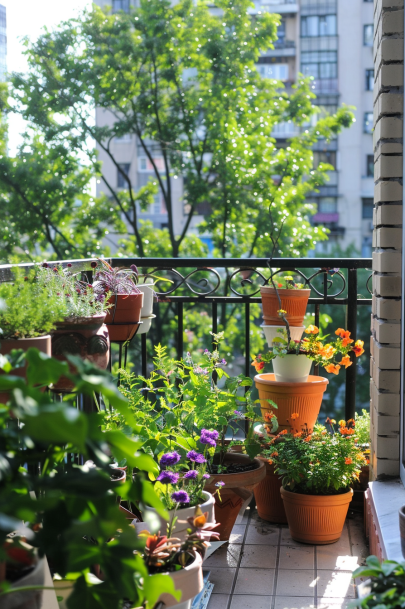
Choose plants that are suited to the exposure your balcony gets. Sun-lovers for south-faced balconies, shade-tolerators for north-faced balconies.
Insulation
Wrap plants that aren’t used to frost with insulating plant wraps or bring containers indoors if temperatures are expected below freezing.
In this way, you can deal with regular pests and protect your balcony garden from extreme weather conditions so that your plants stay lush and green throughout the year.
Conclusion
Regardless of the size of your balcony, any of these balcony garden ideas can help you transform outdoor space into an oasis of your own, garden your own way and make the most out of every inch of your own sky-high terrace, showing that the smallest terraces can give plenty of joy and inspiration.
Be it a vast green landscape or a small patch of soil for growing your own food that you are after, here are plenty of ideas that will help you turn your balcony into a garden and make it bloom into your favourite retreat.
Tap into these ideas and see your balcony garden growing into a wonderful green spot of your own!

